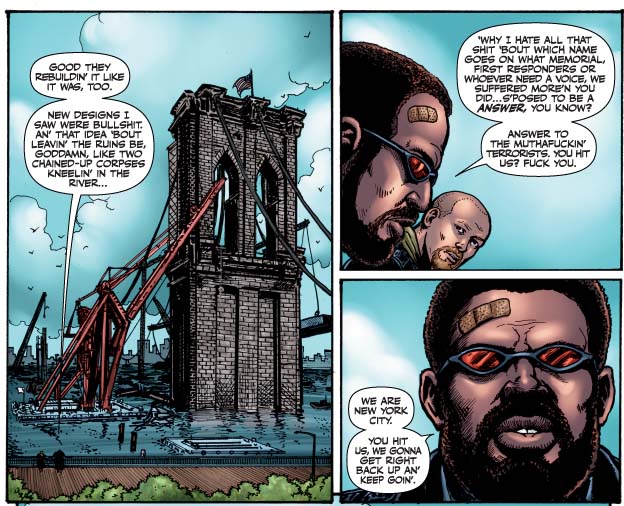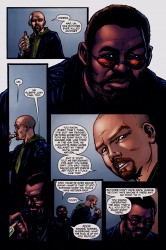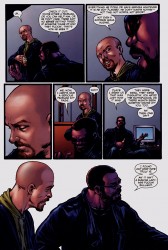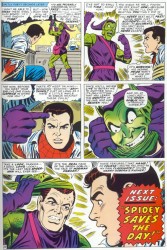
Geoff Klock & Planetary: +3 Years
October 13th, 2009 Posted by david brothersBack in 2006, I did some linkblogging over Geoff Klock’s issues with Planetary 26 and the big end of the series. It’s still a good read, and well worth a look.
It’s kind of funny that a few weeks shy of three years later I’m linking his review of Planetary 27. It’s thorough and brutal and completely, 100% true. Just a snip, because you really must click through:
It feels to me like Ellis failed to give her anything at all to do in the first draft of this script, then writes the problem into the script as her discussion with Elijah (resolved in her future self telling her (not showing her) everything is going to be fine). But then he still wants her to have something to do visually (since a lot of the “action” in this issue is pretty hard to make visual, such as “putting more power to the pulse lamps”), so she gets to leap into action and GRAB A LAMP like a monkey.
I think the first thing I said to some comics reading friends was that the issue was, at best, a C+. It felt like Ellis was going “Wikipedia Wikipedia Wikipedia Wikipedia Wikipedia ZAP! He’s back.” Just miles and miles of clunky and jargon-laden exposition, dragging us kicking and screaming to the end of the issue.
Ellis should’ve left it in the oven longer. It feels like an anticlimax, just like 26 did. In 26, the big bad guys are dropped down a hole. That’s their end. Ellis spent issues upon issues telling us how horrible and evil they are, only giving us a few actual examples (the death of Superman/Wonder Woman/JLA, Snow being mindwiped), and then their big end is that they get dropped in a hole and die. It’s stupid and anticlimactic. Even if the series is about bigger things, you can’t end it that way. It’s lazy. At least the Emperor from Star Wars did his laser show and Satan in a Cloak thing before he got dropped in a hole.
I don’t like the back half of Planetary. Once the series turned from “Other kinds of fiction are fun!” to “The Fantastic Four are Evil, here is evidence, it is just off-screen, do you see it?” I got bored. It turned into Ellis’s trademark Good Bastard vs Evil Bastard, with all of the barked orders and hidden agendas that made Transmetropolitan unbearable. The Four are bad guys, yes, we’re told that over and over. And Snow can be bad (he’s not averse to physical torture [see: Invisible Man, William Leather], he sabotages a chance to harvest wealth of data to get rid of a villain), but he’s not as bad as them, no. And he kept time travel secret just because.
It’s not good. It’s poor writing. It’s telling, not showing. It feels tired, it feels soft, it feels weak. But really, Geoff Klock tells it better than I do.





